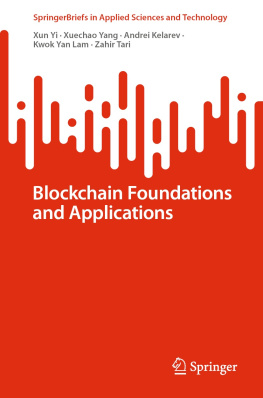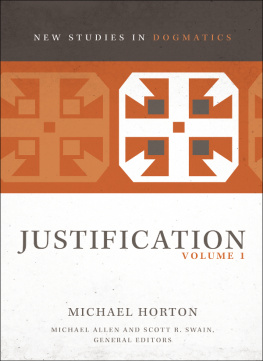NEW TECHNOLOGY IN SOCIOLOGY
NEW TECHNOLOGY IN SOCIOLOGY
Practical Applications in Research and Work
Edited by
Grant Blank, James L. McCartney, and Edward Brent
First published 1989 by Transaction Publishers
Published 2019 by Routledge
2 Park Square, Milton Park, Abingdon, Oxon OX14 4RN
52 Vanderbilt Avenue, New York, NY 10017
Routledge is an imprint of the Taylor & Francis Group, an informa business
New material this edition copyright 1989 by Taylor & Francis
All rights reserved. No part of this book may be reprinted or reproduced or utilised in any form or by any electronic, mechanical, or other means, now known or hereafter invented, including photocopying and recording, or in any information storage or retrieval system, without permission in writing from the publishers.
Notice:
Product or corporate names may be trademarks or registered trademarks, and are used only for identification and explanation without intent to infringe.
Library of Congress Catalog Number: 88-28212
Library of Congress Cataloging-in-Publication Data
New technology in sociology : practical applications in research and work / edited by Grant Blank, James L. McCartney, and Edward Brent.
p. cm.
Bibliography: p.
ISBN 0-88738-769-1
1. SociologyMethodology. 2. SociologyData processing. I. Blank, Grant. II. McCartney, James L. III. Brent, Edward E., 1949
HM24.N398 1989
301'.01'8dc19
88-28212
CIP
ISBN 13: 978-0-88738-769-2 (pbk)
Contents
Grant Blank
Peter Lyman
John P. Walsh and Andrew C. Gordon
Charles C. Ragin and Howard S. Becker
James N. Danziger
Douglas Harper
Steven J. Gold
Philip A. Schrodt
Edward Brent
Renata Tesch
Kriss A. Drass
David R. Heise
Lawrence K. Hong
Guide
EDWARD BRENT AND JAMES L. MCCARTNEY
Most sociologists are aware of the many new technologies available for doing sociological work. Relatively new devices such as microcomputers and electronic recording devices, and substantial changes in the existing technologies of telephones, photocopying, and film offer the prospect of performing the work of sociology in new ways. Yet we know little about how these new technologies have changed the nature of sociological work. Has the impact of these new technological developments changed the way sociologists collect, process, or analyze data? Is sociological theory different, or do sociologists think about themselves and the social world differently because of new technologies? Have these technologies had a differential impact on different specialties or theoretical perspectives? Have relationships among colleagues, or among faculty, staff, and students been altered as a result?
We hoped to answer these questions when we called for papers for a special issue of The American Sociologist. We wrote to several hundred sociologists and social scientists who were active in writing about computers and technology. These questions appear to have struck a responsive chord among sociologists. The response was overwhelming. Dozens of articles were submitted, too many high-quality articles to fit into a single issue of the journal. Because there were so many good articles that touch on important issues relating to this theme of the impact of technology on the changing nature of sociological work, Transaction Publishers was persuaded to publish this book, which contains twice as many papers as appeared in the special issue of The American Sociologist.
Like all intellectual products, the preparation of the book involved a division of labor. Although the original concept grew out of discussions among the editorial staff of Edward E. Brent, Mary Jo Neitz, Victoria Godino, and James L. McCartney in Columbia, Missouri, we selected Grant Blank, in Chicago, as special editor of the project. Blank received all the papers, sought reviewers, monitored revisions, and made final decisions about what papers should be included. Blank transmitted all papers to the editorial office via BITNET, where they were edited by Godino, Brent, and McCartney. While the use of electronic mail speeded up the transmission of manuscripts, the perennial problems of editing (missing references, malapropos prose) required that we make extensive use of the older technology of telephones and expensive mail. Thus, we reaffirmed the lesson: the newer technologies bring mixed blessings.
The unalloyed blessing of this project was the contact we had with many colleagues who reviewed papersin some cases, several papers each. The colleagues who deserve special mention are Ronald E. Anderson, Susan Anderson Freed, Howard S. Becker, Paula Brush, Kathleen Carley, Joseph Conaty, Peter Conrad, Noshir Contractor, Carl Couch, Sheila Courington, G. David Curry, Kriss A. Drass, Elihu Gerson, Fred Halley, Allen Harden, Douglas Harper, David R. Heise, Frank Howell, Carla Howery, Daniel Hoyt, Charles Lidz, Jeff Nash, Kathryn M. Neckerman, Ray Padilla, Richard Peterson, Terri Rosegrant, Richard Rosenberg, James Rule, Wesley M. Schrum, Russell Schutt, John Seidel, Anne Shelly, Gideon Sjoberg, John A. Sonquist, Renata Tesch, Mark Testa, Bob Weber, and Wayne Wheeler.
We owe a special thanks to Lynn Brown who helped us coordinate the papers in this book and who patiently typed all of the figures and tables.
GRANT BLANK
No sociologist... should think himself too good ... to make tens of thousands of quite trivial computations in his head and perhaps for months at a time (Weber 1946, p. 135).
Max Weber's advice illustrates how much sociology has changed. Few sociologists would be willing to spend months making "thousands of trivial computations... Few have done so since counter-sorters came into wide use in the 1940s. Now counter-sorters are gone, replaced by another technology, the computer. Computers are a tremendously flexible and versatile tool, and they raise the question of the impact of new technology on sociological work with unprecedented force. The impact of technology is an important scholarly topic because of the recurring suspicion that technical tools influence the content and quality of scholarly work.
The articles in this volume examine the social, cultural, and political influence of technologies ranging from microcomputers to photography. To unify the presentation we need a common ground from which we can assess these divergent influences and technologies. This is provided by Charles Ragin's (1987) fundamental distinction between case-oriented and variable-oriented research. Ragin's distinction identifies two poles of a continuum on which most research may be arranged. At one pole, case-oriented research focuses on understanding the specific characteristics of individual cases. Cases are treated as wholes, and the distinctive combination of characteristics in each case is used to understand the context in which events occur.
By contrast, variable-oriented research focuses on making generalizations about populations. Cases become interchangeable observations that are characterized by the values of independent and dependent variables. Individual observations are analyzed only if they deviate from the major pattern of the population (e.g., as outliers). Variables are incorporated into a database of information used to test hypotheses. This is clearly a radically analytic strategy in that the observations are separated into their component parts as variables, and the main effort is devoted to examining the relationships among the variables.











